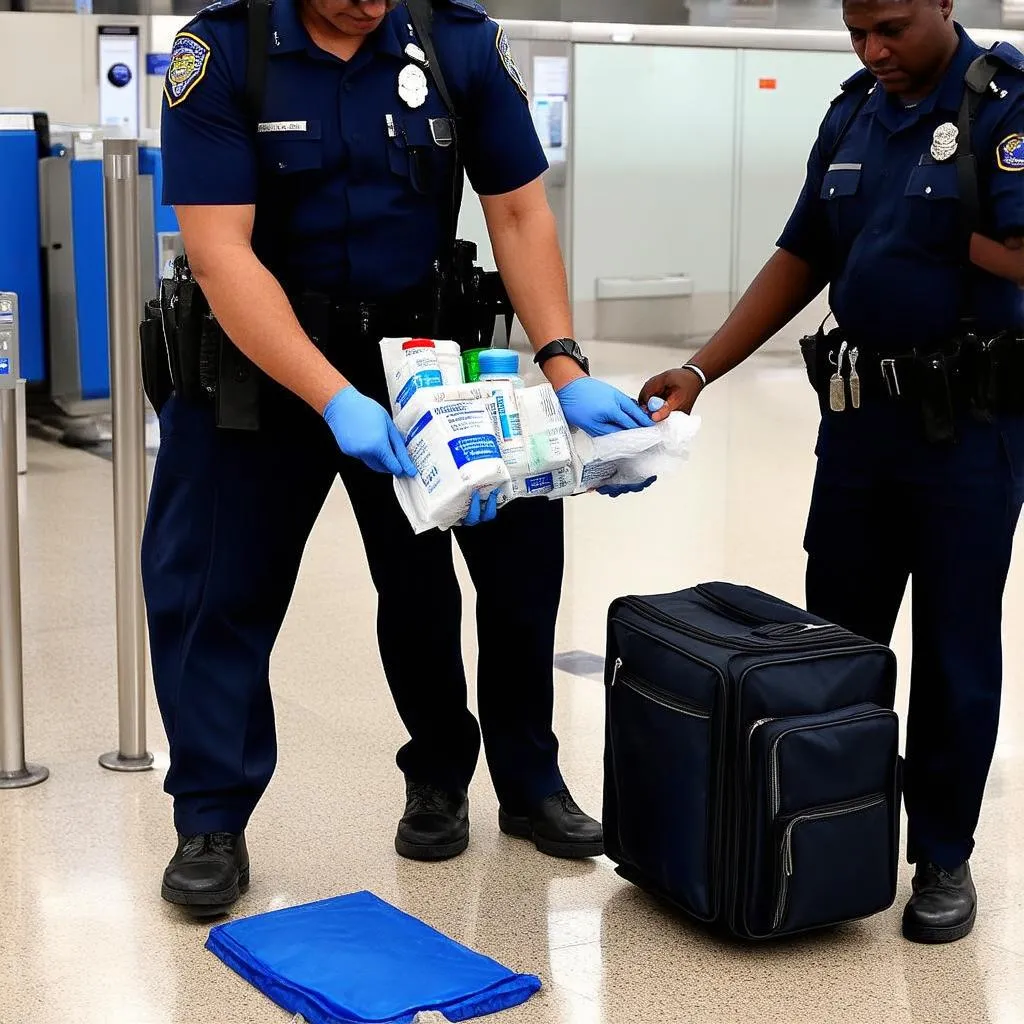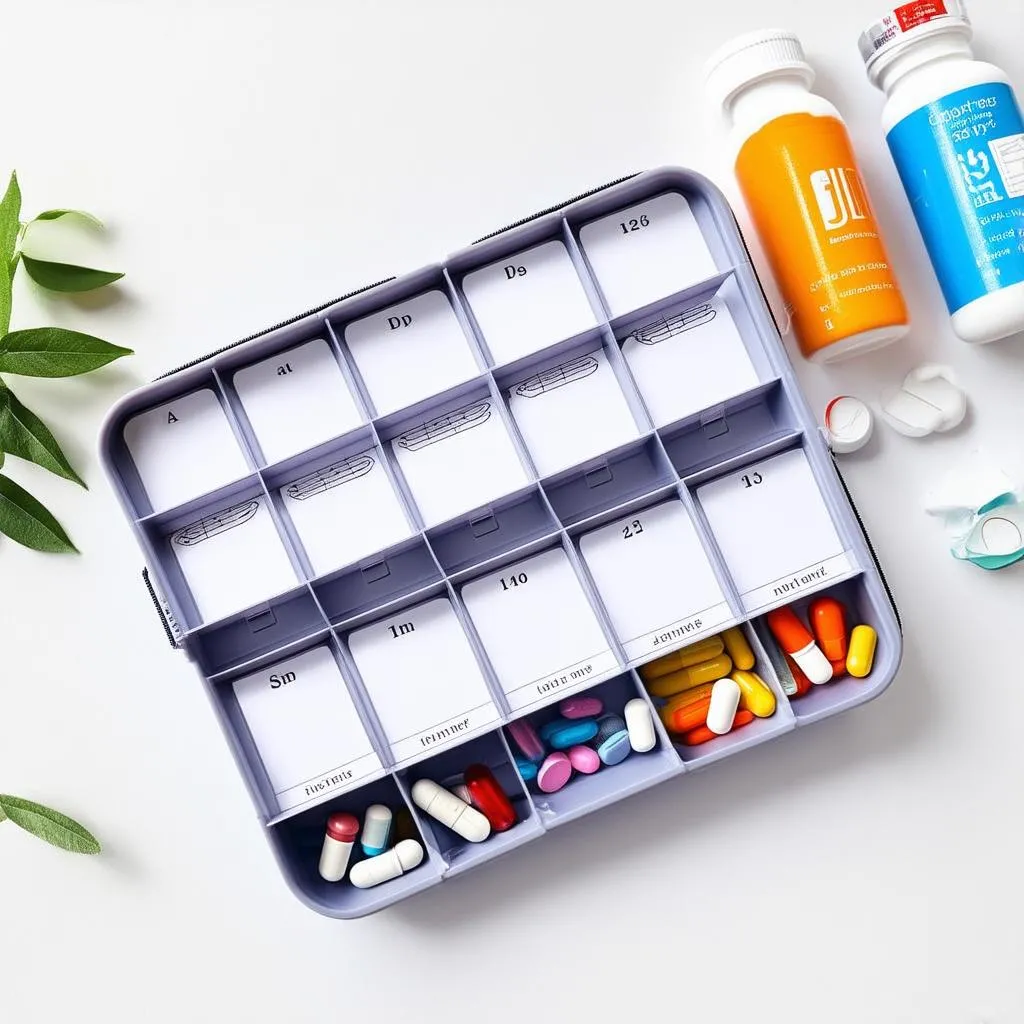Picture this: you’re strolling down the sun-kissed streets of Rome, indulging in the most delicious pasta you’ve ever tasted. Suddenly, a splitting headache hits. You reach for your bag to grab your trusty pain reliever, only to realize you’ve packed it in your checked luggage. Don’t let this travel nightmare become your reality! Packing medications for air travel can be a bit tricky, but with a bit of planning and our handy guide, you’ll be prepared for anything your trip throws your way.
Understanding the Rules and Regulations
Before we dive into the packing process, let’s talk about the most crucial aspect: the rules. Just like how the Trevi Fountain has specific etiquette (no swimming!), air travel comes with its own set of regulations for carrying medications.
TSA Guidelines for Carry-On Medications
The Transportation Security Administration (TSA) in the United States, along with similar authorities worldwide, allows you to carry liquid medications exceeding the standard 3.4-ounce limit in your carry-on bag. However, you’ll need to:
- Declare your medications: Separate your medicines from your other liquids and inform the TSA officer at the security checkpoint.
- Be prepared for additional screening: Your medications might be subject to additional screening, but don’t worry, it’s all part of the process to keep everyone safe.
Pro Tip: Consider carrying a copy of your prescriptions or a letter from your doctor, especially for medications with unusual names or if you’re traveling internationally.
 Airport Security Medication Check
Airport Security Medication Check
Packing Medications in Checked Luggage
While it’s generally recommended to keep essential medications in your carry-on bag, you can pack non-essential medications in your checked luggage. However, be mindful of extreme temperatures, especially if you’re traveling to destinations with scorching summers or freezing winters.
Expert Insight: “Extreme temperatures can impact the effectiveness of certain medications,” warns Dr. Sarah Thompson, a seasoned travel health specialist. “If you’re unsure, consult your doctor or pharmacist about the best way to store and transport your specific medications.”
How to Pack Your Medications Like a Pro
Now that you’re familiar with the rules, let’s get down to the actual packing process. Here’s a step-by-step guide to packing your medications like a pro:
Make a List: Before you start tossing pills into your bag, create a comprehensive list of all the medications you need, including prescription and over-the-counter drugs, vitamins, and supplements. This list will be your travel companion throughout your trip.
Keep Medications in Original Packaging: Whenever possible, pack your medications in their original, labeled containers. This not only helps with identification but also ensures you have the correct dosage instructions and expiration dates readily available.
Use a Pill Organizer: For shorter trips or if you’re carrying a variety of pills, consider using a pill organizer. It’s a convenient way to keep your medications organized by day and time, especially helpful if you’re navigating different time zones.
Pack for Spills: Accidents happen, so it’s always wise to pack for spills. Place your medications in a sealed plastic bag or a dedicated medication pouch to prevent any leakage or damage to your other belongings.
Carry Essential Medications with You: Pack your essential medications, such as inhalers, EpiPens, or medications you need to take on a strict schedule, in your carry-on bag. This ensures you have easy access to them during the flight and in case your checked luggage gets delayed.
 Travel Pills Organizer
Travel Pills Organizer
Navigating International Travel with Medications
Traveling internationally with medications requires some extra considerations. Here’s what you need to know:
Check Destination-Specific Regulations: Medication laws vary significantly from country to country. Research the specific regulations of your destination regarding the import of medications, especially if you’re carrying controlled substances or a large quantity of medicines.
Carry a Doctor’s Note: A doctor’s note stating the necessity of your medications can be invaluable, especially when dealing with customs officials. It’s best to have it translated into the local language of your destination if possible.
Be Mindful of Traditional Medicines: In some cultures, traditional medicines and remedies are prevalent. If you’re considering trying them, do your research and consult with a healthcare professional to ensure they don’t interact negatively with your existing medications.
Frequently Asked Questions about Packing Medicines for Air Travel
Can I pack liquid medications in my carry-on bag?
Yes, you can pack liquid medications exceeding the standard 3.4-ounce limit in your carry-on bag, but you need to declare them to the TSA officer at the security checkpoint.
Do I need to carry my prescriptions with me?
While not always mandatory, it’s highly recommended to carry a copy of your prescriptions or a letter from your doctor, especially for medications with unusual names or if you’re traveling internationally.
Can I pack my medications in a pill organizer?
Yes, using a pill organizer is a convenient way to keep your medications organized, especially for shorter trips or if you take multiple medications.
Embrace Your Journey, Worry-Free
Packing medications for air travel doesn’t have to be a daunting task. With a little planning and our comprehensive guide, you can ensure a smooth and stress-free journey. Remember to check the specific regulations of your airline and destination country, pack your medications wisely, and enjoy your well-deserved trip!
For more travel tips and advice, explore other informative articles on travelcar.edu.vn!